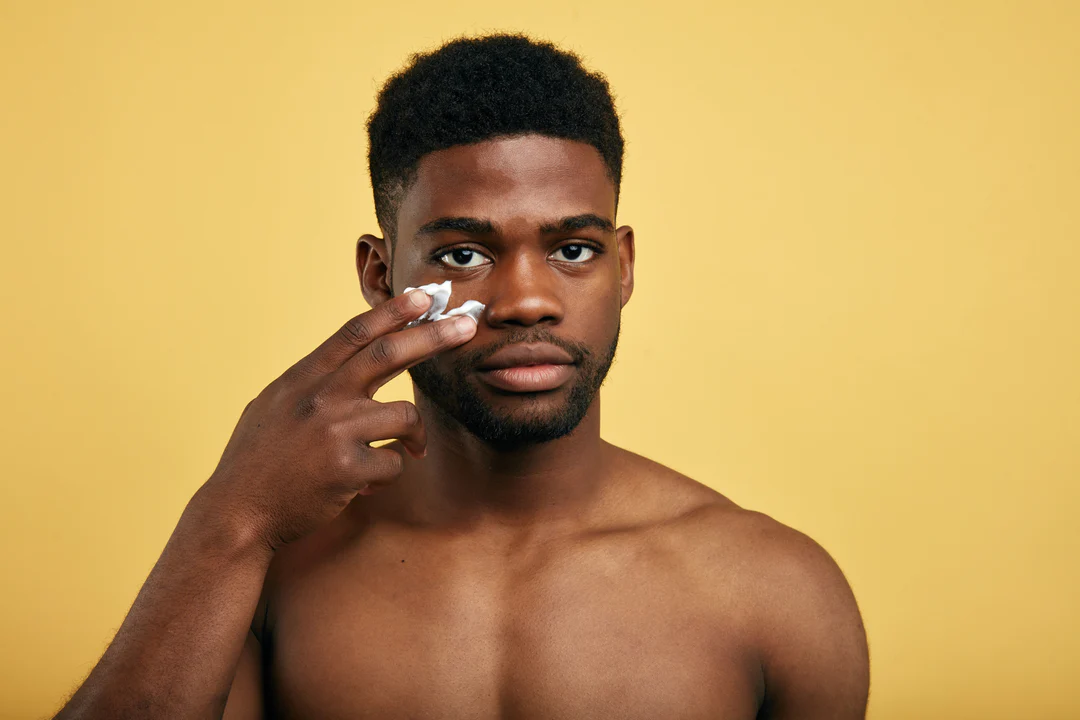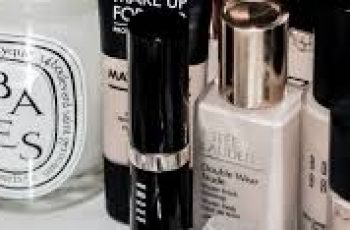
Can You Use Differin with Retinol Products?
By now you are all aware of how much we love retinol and the plethora of benefits it has on the skin. But there is another ingredient you may or may not have heard of before and that’s differin. This is an ingredient that has gained a well-deserved, adoring fan club, from skincare users to skincare experts. Differin is one of the most potent forms of retinoid, with it being available by prescription only formulations. You understand that this ingredient packs a bit of a punch and is used to target all manner of skin concerns, from cystic acne to body acne.
So, you may be thinking, surely using differin and retinol will make a powerful duo that will work on improving skin clarity and reducing any signs of premature ageing, from fine lines and wrinkles to loss of elasticity.
What is differin?
Differin in a form of retinoid that is formulated into prescription only products. With the fact it is one of the most potent retinol products it is always advisable to take your time when adding it into your evening routine. Here are some of the main benefits you can expect when using differin in your routine.
It is an effective ingredient to help prevent blemishes by combating the bacteria that causes breakouts.
Combats existing blemishes resulting in them becoming reduced and less frequent.
Potent anti-ageing ingredient that can increase the skin cell turnover revealing fresh, new skin underneath.
Has a slightly different chemical structure that other retinoids meaning it is known for being less irritating.
Works in the lower layers of the skin to boost collagen and elastin production.
Helps target hyperpigmentation, dark spots, and uneven skin tone.
What is retinol?
Retinol is a form of vitamin A and is often found in over-the-counter formulations. Having said that it does come in a variety of strengths and can also be found in medical grade skincare products. The main difference between retinol and retinoid is the fact that the latter is only available through prescription only. Here are some examples of benefits you will see when using retinol.
Prevents fine lines and wrinkles developing and becoming more noticeable.
Brightens the overall complexion.
Targets any uneven texture giving you a smoother skin surface. Regulates the skin helping it to reduce blemishes and breakouts Fades hyperpigmentation, dark spots, sun damage, and age spots giving you an even looking complexion. Works in the lower layers of the skin improving signs of skin sagging by boosting the collagen production. What products should not be used with differin gel? As effective as differin is, it is also known for not playing nicely with certain other skincare ingredients. The ingredients you should avoid using with differin are. Benzoyl Peroxide Alpha Hydroxy Acids, such as glycolic acid and lactic acid Beta Hydroxy Acids, such as salicylic acid Astringent Toners and other drying agents These are mainly chemical exfoliants which often work on the outer layers of the skin, with some penetrating further into the skin. By using exfoliating ingredients with a form of retinoid will be too much exfoliation and will lead to reactions, such as dry, irritated, flaking skin. To avoid these, it’s best to follow your differin product with hydrating formulations, particularly those that contain hyaluronic acid, niacinamide and other nourishing ingredients, such as vitamin E. Can I use differin with retinol products? Not really, mainly because retinol and differin are very similar ingredients. Both are a form of retinoid that just vary with the strength of potency. If you use both together with the idea of seeing quicker results, you may be surprised to find the opposite occurs. With both retinol and differin increasing the skin cell turnover your skin will become dry, uncomfortable, tight, red, with areas of flaky patches. It will also become stripped of the vital oil and water levels needed to keep the barrier at its healthiest state leading to it kick starting an over production of sebum (the natural oil found in the skin). This will result in a flare-up in breakouts and an imbalance in the skin making it oilier. Is differin stronger than retinol? Yes, it can be, this is because differin is a prescription only ingredient meaning its level of potency will be considerably higher than some retinol found in over-the-counter products. It is often considered best if you are wanting to start introducing a form of retinoid to your everyday skincare routine, that you can start with an OTC or medical grade product containing a percentage of 0.5%. Once your skin has built some tolerance you will then be able to increase the percentage. It is important to remember that no matter which formula you choose to add to your regime, you must introduce it slowly and in the correct way to avoid any excessive irritation and flare-up to the skin. Can I use differin if I don’t have acne? Yes, you can. Although differin is highly effective at combating blemishes, this is not the only benefit of using differin on the face. With its ability to increase skin cell turnover you will find it is able to reduce any signs of ageing, such as fine lines and wrinkles. It is also able to combat uneven skin tone and fade age spots, acne scarring, hyperpigmentation, and sun damage. Those are just a couple of examples of the benefits of using differin, bearing in mind that you must use it as instructed and only apply it to the skin once a day during your evening routine. Applying it more than once a day will not increase the chances of seeing faster results but will lead to irritation and negative reactions. Is retinoid and retinol the same? They are similar, the main difference is the fact that retinoids are often found in prescription products as they tend to be more potent. As for retinol, this is thought to be a weaker version and formulas are found in over-the-counter products. Just a word of caution, whichever form you decide to use, ensure you have consulted with your GP or dermatologist to find the best product you and your skin will love. If you are wanting to find out more about whether retinoid and retinol are the same, check out our dedicated blog post. I hope that has answered some of your questions about using differin and retinol products together, don’t forget if you have any questions come and find us on Instagram.
DQH Can I use salicylic acid first and then vitamin C?
It’s easy to create a skincare routine, but knowing how to use it is another thing entirely. In most cases, if you’re not getting the desired skin results, it could be due to the layering of conflicting ingredients. So, is it possible that salicylic acid and vitamin C are such ingredients? Or are these active ingredients the duo that’s been missing from your skincare routine? If you want answers, stick around because today we are going to explain the benefits of salicylic acid and vitamin C and how they can be used in your daily life.
What are the benefits of salicylic acid for skin?
Salicylic acid is one of the most commonly used beta hydroxy acids and is favored by many people with oily, acne-prone skin. This acid is derived from willow bark, and unlike its water-soluble relatives (called alpha-hydroxy acids), salicylic acid is oil-soluble, which means it can penetrate deeper into the lower layers of the skin. Once it reaches the lower layers, it can help unclog pores of excess sebum, dirt, bacteria, debris, and impurities. This results in clearer skin tones and greater definition.
Not only does salicylic acid benefit the underlying layers, but the outer surface of the skin benefits as well. When applied to the skin, salicylic acid removes the buildup of dead skin cells. This is accomplished by breaking the bonds that hold dead cells to the surface. Over time, this can cause the complexion to look dull and prone to acne, blackheads, and other blemishes.
If you’d like to learn more about salicylic acid and how it can improve your skin, check out this dedicated blog post from a beauty insider.
What are the benefits of vitamin C for skin?
Vitamin C is considered one of the most powerful antioxidants, which means it is very effective at fighting free radicals and preventing them from causing further skin damage. Examples of free radicals include pollution, central heating, UV rays and harsh climate. They attack proteins, fats and cell membranes as soon as they come into contact with the skin, causing signs of premature aging such as fine lines and wrinkles as well as hyperpigmentation, flaky patches of skin and loss of elasticity.
Many people usually prefer to use vitamin C in their morning routine as this ingredient gives the complexion a radiant glow. You’ll also find that vitamin C can target areas of hyperpigmentation, plumping the skin and reducing the appearance of fine lines and wrinkles.
The thing about vitamin C is that there are a lot of outdated studies going back to the 1950s that describe vitamin C as an unstable skin component. Thanks to improvements in modern technology, this is no longer the case as all products now contain a stable form of vitamin C.
Visit The Beauty Insider to learn more about vitamin C. So please check out our blog post.
Can I use salicylic acid first and then vitamin C?
Yes, you absolutely can. In fact, it’s thought that using salicylic acid before using vitamin C ensures it penetrates faster and works faster.
This is an efficient way to utilize two power sources, and the reason has to do with pH. For example, the skin’s natural pH is about 4.7, making it slightly acidic. Salicylic acid and vitamin C are also both acidic, and you’ll find that vitamin C is absorbed quickly into the skin. Therefore, using salicylic acid beforehand can increase the acidity of the skin and allow vitamin C to penetrate into the skin faster.
While this is considered an effective way to combine two powerful ingredients, you need to be aware of your skin type and how it reacts to certain active ingredients. Even people with perfect, normal skin can experience skin sensitivity and irritation. Therefore, always consult a doctor or dermatologist before using any new products on your skin.
It’s also important to follow skin application rules. In this case, you need to use the product correctly to ensure you get the best results for your skin. If you’re not sure what I mean, the basic rule for skin is to start with the thinnest consistency and work your way up to the thickest consistency. This prevents a barrier from forming on the surface, preventing other active ingredients from penetrating the skin.
Can I use salicylic acid at night and vitamin C in the morning?
Yes, absolutely, this is considered the most effective way to get returns without any adverse side effects. This is because there is enough time between applications to ensure that the skin’s pH levels return to balance.
You’ll also find that Vitamin C is rich in antioxidants and is perfect for use in the morning to ensure your skin is protected and looking its healthiest. Due to the small size of salicylic acid molecules, it is an acid that is able to reach the deepest parts of the skin. While this is effective at keeping skin clear, it also increases the risk of irritation and photosensitivity. Therefore, many people prefer to use powerful BHAs in their evening routine without exposure to UV rays, pollution, or harsh weather.
Warning: If you avoid using sunscreen every day, none of these ingredients will do what your skin needs. The combination of chemical peels and powerful ingredients increases the risk of further damage to the skin’s surface. Use SPF 50 every day to keep your skin protected and your lipid barrier healthy, even on cloudy days, keeping your skin in top condition.


